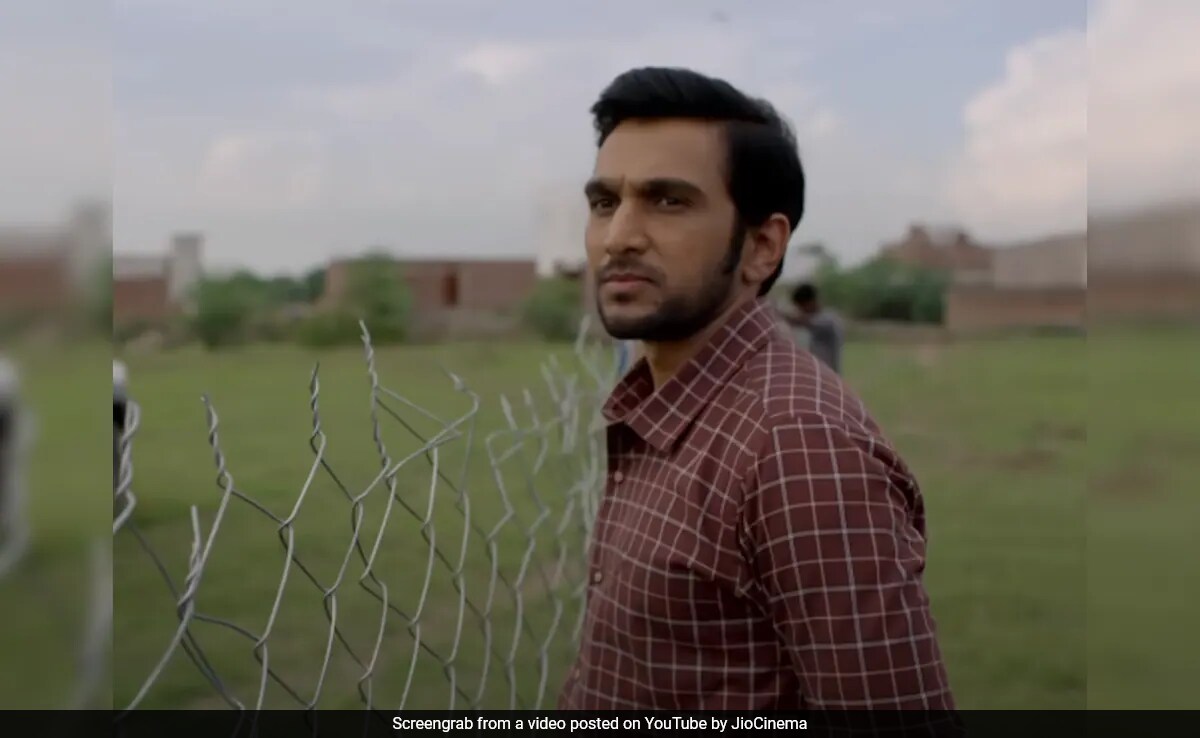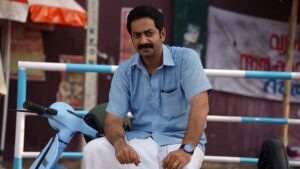Prateek Gandhi shines in an unpleasant film

A common man fighting for his rights in a system heavily weighted against him is a familiar figure in Hindi cinema who seeks to address the inequalities that plague the nation. Its hero Dead bigha land are cast in the same mould.
Written and directed by Pulkit and streaming on JioCinema, the film is about an everyman who fights against his circumstances, the law and blatant abuse of political power. However, the methods it employs are so understated that the anger and frustration of the underclass barely registers.
The line between subdued and bland is very thin Dead bigha land. The obstacles the main character faces seem insurmountable but he continues regardless. He’s a good fight all right but doesn’t measure up to the film.
The inherent restraint in the storytelling stands out, but the play doesn’t say anything we don’t already know. The villains here are not the greedy landlords and moneylenders of old but a dowry seeker, a dishonest broker and a powerful land grabber.
Dead bigha land Uses a dilapidated plot for the tragic plight of a grain merchant who is forced to take a stand against the local MLA in a small town in Uttar Pradesh despite being aware of his own powerlessness.
Bit of lazy Dead bigha land Collect passes because of what lead actor Pratik Gandhi brings to the table. Using concise means, he creates a believable portrait of a man burdened by adversity. He shines in an impromptu film that weaves together an oft-told story.
The film gets its point across but lacks the power to make the audience sit up and sway with indignation at the way things unfold for the hero.
Dead bigha land Life never fully emerges although there are points in the narrative where the audience feels the pain of the tormented protagonist. His struggles come across as real and relatable, but so do the obstacles he faces – his material needs, his sister’s marriage, a disputed plot of land that cannot be sold, a shrewd local politician who won’t budge, and the dreaded fear of failing to fulfill his duties. His family – too familiar and predictable. His progress, or lack thereof, is therefore not surprising.
Pratik Gandhi plays Anil Singh, a faceless and unrepentant wheat seller who lives with his mother (Neeta Mahindra), wife Pooja (Khusali Kumar) and sister Neha (Prasanna Bisht). Trouble begins when he finds a match for his sister and decides to sell a small piece of land to finance the wedding.
Anil hires a local broker to find a buyer for the land. But he comes to know that a MLA has taken possession of the plot. The proposed marriage is in danger of being annulled unless she can get the politician to waive his claim on the land. Thus begins an unequal battle against an unyielding opponent whose hand is unlikely to get out of Anil’s way unless forced.
The wafer-thin story centers on humble Anil who hopes against hope that he can meet the busy MLA and appeal to his good nature. When he discovers the possibility of regaining control of the land’s collapse, he decides to give it all up. I may be a face in the crowd that counts for nothing but I will fight, he tells his wife.
The women around Anil are silent spectators. Anil’s wife occasionally gets a say in the margins but his sister and mother have no say in his decisions. Anil himself is as gentle as a lamb. Even when he is pushed against a wall and has nothing to hold him, he does not lose his composure. His faith in the law and the property papers he had in hand kept him going. But at every step he failed and was deceived.
As indicated earlier, Dead bigha land This is not a simple good-versus-evil drama. There isn’t an overwhelming villain to compete with the hero. Here the evil is pervasive and deep-rooted and manifests itself in small, deadly doses of hatred that poison the lives of those who have been cowed by the system for generations into believing that they must make peace with the powerful and wealthy in order to survive.
The outcome of the David-Goliath encounter is a foregone conclusion for everyone except Anil and his family. They live in hope. Some of it was deposited with the police. But law enforcement has no interest in protecting people like Anil. Inspector Sunil Yadav (Faisal Malik) interrogates Anil several times but does nothing to redress his grievances.
A concerned uncle (Daya Shankar Pandey) and a loyal friend, Asif (Avinash Chandra), do their best to help Anil overcome the crisis but nothing is ever enough. The problems that man faces are complex. There are rare moments when Anil takes the law into his own hands, but his aggression usually boomerangs when it is directed against men of his size and, therefore, meeting their fate like him.
Her story is as desperately grim as the nondescript town she lives in. There is nothing in the screenplay that either brings the situation to life or has the power to create the conditions that would make Anil’s struggle worthy of sustained attention.
One thing that Dead bigha land It’s to avoid false optimism or heroic derring-do, a choice that might seem like a departure from the genre’s defining conventions but lacking any significant tonal variety, the 100-minute film segments often sink into tedium.
Pratik Gandhi is in almost every frame of the film – not a bad thing at all – but the maker Dead bigha land It would have been better if the supporting actors were given more to do.
the way Dead bigha land The ending is disturbing, if not surprising. But that’s about it. There isn’t much in the film that comes anywhere close to anything out of the ordinary.



